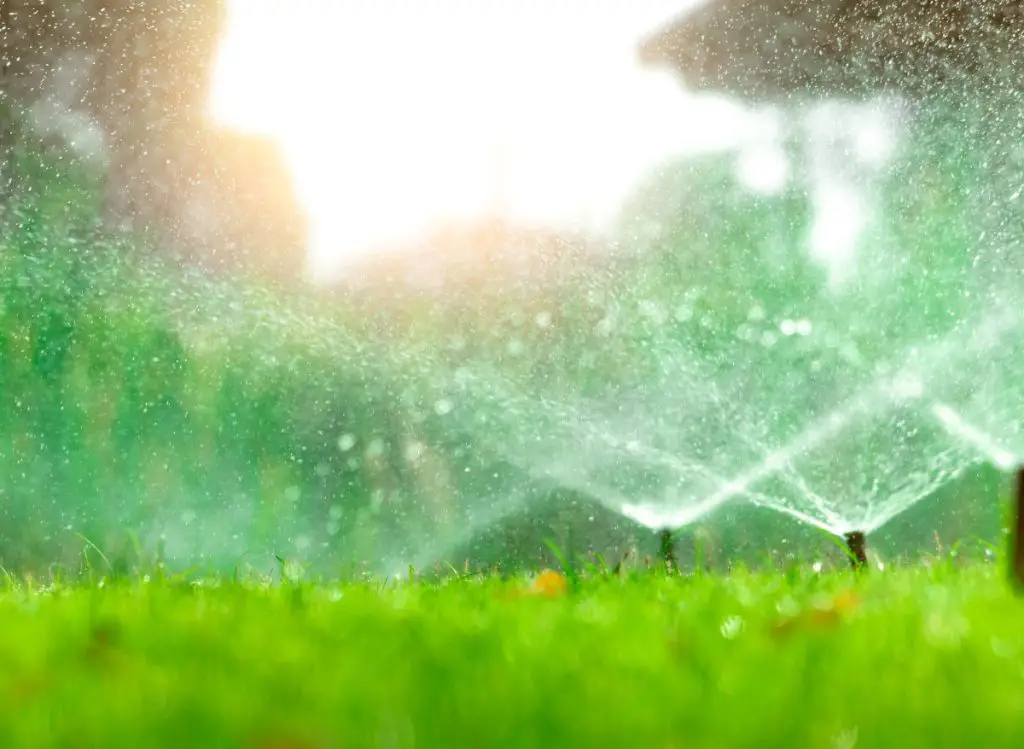
Do you prefer natural remedies over chemical fertilizers and pesticides? If so, you may have heard that vinegar can be a great solution for controlling weeds.
But have you ever wondered if vinegar can also kill grass? In general, vinegar with a higher concentration of acetic acid controls weeds and grasses more effectively. According to Montana State University, 20% or 30% acetic acid is more effective because it completely eradicates young leaves and growing points.
In this blog post, I will look at the effects of vinegar on grass and determine whether it is a viable option for lawn care. If you wonder whether vinegar kills Crabgrass or not, I wrote a whole article that I encourage you to read.
What Is Vinegar Solution?
Vinegar, in its distilled white form, is an acetic acid solution derived from grain alcohol that has a pH of around 2.0-3.0. The acid in vinegar works by disrupting the plant’s cell membranes, resulting in the plant’s moisture loss and eventual death.
When applied to grass at full strength, vinegar can kill the grass, but it is a slow-acting herbicide that will take some time to work. Moreover, vinegar will not discriminate between grass and other plants, which means it can kill other desirable plants in your garden.
About Vinegar and Grass
Regular household vinegar is a solution of acetic acid and water, usually with an acidity level of 5%. However, this type of vinegar is proven to be less effective for weed and grass control because of its lower concentration of acetic acid.
The truth is that vinegar can indeed kill grass, but it depends on the concentration and application method. Applying undiluted vinegar directly to the grass can be extremely harmful, and it’s likely to kill off not only the weeds but also the surrounding grass and other plants.
It is recommended to use a diluted vinegar solution with 20% or 30% acetic acid in a spray bottle, or a garden sprayer can be an effective way to control weeds without causing harm to your lawn.
Factors That Can Affect The Potency of Vinegar as a Natural Herbicide
It is worth noting that there are some factors that can affect the potency of vinegar as a natural herbicide.
1- Acetic Acid Concentration
In general, the higher concentration of acetic acid, the more effective will the vinegar solution be. Also, the acidity level of vinegar can vary depending on the brand and type used. Some vinegar solutions may also contain additives that can affect their effectiveness.
Additionally, using vinegar on a windy or rainy day can cause the solution to spread uncontrollably and damage nearby plants. Generally, acetic acid works better in hot and sunny conditions.
2- Grass Growth Stage
Typically, smaller and younger grass and weeds are more susceptible to vinegar. Using vinegar on weeds on seedlings at the two- to four-leaf stage is proven more effective. However, using vinegar on perennial plants might be ineffective because they can resprout from roots even if the canopies of plants are damaged.
3- The Type of Grass
Vinegar is non-selective; weeds and grass differ in their susceptibility to vinegar. For instance, broadleaf plants are generally more easily controlled with vinegar than grasses.
If you decide to use vinegar on your grass, I recommend you use it responsibly, dilute it properly, and avoid spraying it directly on your grass if you want to avoid killing your lawn.

Using Vinegar as An Herbicide
If you want to use vinegar as an herbicide, it is best to dilute the solution by mixing 1-2 cups of vinegar with 1 gallon of water. The diluted vinegar solution can be applied from a spray bottle, and several applications are usually needed to see any results. This method is recommended, especially if you’re trying to spot-treat weeds.
Alternative to Using Vinegar
Another alternative to using vinegar is to use boiling water to kill grass. The high temperature of the water scalds and kills the grass, which is just as effective as vinegar.
However, like vinegar, it is not selective and can kill other plants in the vicinity. Furthermore, boiling water can also damage and kill important soil microorganisms that are essential for maintaining soil fertility.
Drawbacks Of Using Vinegar To Control Grass
If you’re considering using vinegar on your lawn, be warned that repeated applications of the vinegar solution can cause soil acidity, affecting the pH balance your grass needs.
An acidic soil environment is not ideal for grass growth, and it can cause your lawn to turn yellow or brown, leading to grass death in the long run.
Generally, vegetables, grasses, and most ornamentals thrive in slightly acidic soils with a pH between 5.8 to 6.5. If your soil’s pH level is above or below, it may lead to less vigorous growth and nutrient deficiencies. (Source: Clemson University)
What to read next:
- Can You Miss A Day When Watering A Grass Seed?
- Types of Worms in Potted Plants: What You Need to Know!
- Say Goodbye to Crabgrass: Effective and affordable homemade Crabgrass killer!
Final Thoughts
Vinegar can be a helpful tool for controlling weeds in your lawn, but it is important to use it responsibly and with caution.
If you are planning on using vinegar as a natural herbicide, I suggest you dilute it properly, avoid spraying it on windy or rainy days, and stay away from applying it directly on your grass.
Alternatively, you can use vinegar as a natural fertilizer to promote healthy growth and a greener lawn. I believe that with the right application method, vinegar can be a natural and effective solution for lawn care.

